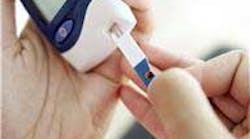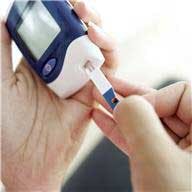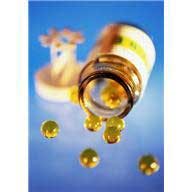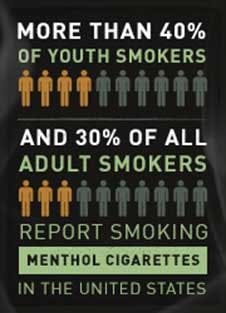FDA publishes alert for illegal sales of diabetes treatments, invites public input on menthol in cigarettes
Aug. 16, 2013
Consumers with diabetes may have severe health problems, and this is exacerbated by choosing illegally sold products that claim to prevent, treat or cure diabetes. In addition to making unproven claims, these products may also be dangerous by themselves. The U.S. Food and Drug Administration (FDA) is taking action to remove illegal products, including some labeled as dietary supplements, that claim to mitigate, treat, cure or prevent diabetes and related complications from the market. The FDA recently issued letters warning 15 companies that the sale of their illegally marketed diabetes products violates federal law. The letters were sent to foreign and domestic companies whose products were sold online and in retail stores.
*The FDA ALERT is below in its entirety AUDIENCE: Consumer, Health Professional ISSUE: FDA is taking action to remove from the market illegal products, including some labeled as dietary supplements that claim to mitigate, treat, cure or prevent diabetes and related complications. To date, the FDA is not aware of any reports of injury or illness associated with the illegally sold products, but is taking action to protect the public health from potential harm related to these violative products. These illegally sold products include: Products sold as “natural” treatments for diabetes, but containing undeclared active pharmaceutical ingredients in unknown quantities that could cause harm or complicate medical conditions;
* Dietary supplements and ayurvedic products (medicine of the healing arts that originated in India) with claims to treat, cure, and/or prevent diabetes; Unapproved drugs sold over-the-counter, including some homeopathic products, intended to treat complications associated with diabetes, which include relieving symptoms caused by nerve damage in the arms and legs (also called peripheral neuropathy); and Prescription drugs for diabetes sold by online pharmacies without a prescription. BACKGROUND: FDA-approved diabetes treatments, prescribed by a licensed health care professional and shown to be safe and effective, are readily available for people with diabetes. Many of the illegally sold products that are the subject to this action include claims such as “prevents and treats diabetes,” and “can replace medicine in the treatment of diabetes.” FDA recently issued letters warning 15 companies that the sale of their illegally marketed diabetes products violates federal law. The FDA has requested a written response from these companies within 15 business days stating how the companies will correct the violations. Failure to promptly correct the violations may result in legal action, including product seizure, injunction, and/or criminal prosecution. RECOMMENDATION: FDA is advising consumers not to use these or similar products because they may contain harmful ingredients or may be otherwise unsafe, or may improperly be marketed as over-the-counter products when they should be marketed as prescription products. Using these products could cause consumers to delay seeking proper medical treatment for their diabetes. Healthcare professionals and patients are encouraged to report adverse events or side effects related to the use of these products to the FDA's MedWatch Safety Information and Adverse Event Reporting Program: Complete and submit the report Online: www.fda.gov/MedWatch/report.htm. Download form or call 1-800-332-1088 to request a reporting form, then complete and return to the address on the pre-addressed form, or submit by fax to 1-800-FDA-0178. Read the MedWatch safety alert, including links to the News Release and Consumer Update on the website.(1)
* In an unrelated issue, the FDA invites public input on menthol in cigarettes.(2) Tobacco use in the United States continues to be the leading cause of preventable death and disease.(3) In the United States, about 30 percent of all adult smokers and more than 40 percent of all youth smokers report smoking menthol cigarettes.(2)
Photo from FDA: Menthol Cigarettes(4) Preliminary scientific evaluation indicates there is likely a public health impact of menthol in cigarettes. This advanced notice of proposed rulemaking (ANPRM) requests comments, including comments on FDA's preliminary evaluation, and data, research, or other information that may inform regulatory actions FDA might take with respect to menthol in cigarettes.(5) According to a 2004 study, over 70% of African American smokers prefer menthol cigarettes, compared with 30% of White smokers.(6) The article examined some key social factors that led to disproportionate use of mentholated cigarettes by African Americans compared with other Americans. Many of the conclusions were based on the tobacco industry documents disclosed following the Master Settlement Agreement in 1998.(6) The FDA believes that menthol cigarettes may have an impact on tobacco cessation and quit attempts. The FDA is planning to conduct a number of studies to look at genetic differences in taste perceptions in tobacco use, the effects of menthol in cigarettes regarding tobacco addiction. Several peer‐reviewed articles have been published that relate to menthol in cigarettes. A reference addendum provides a summary of updated research relevant to the full scientific review.(7) Clinical impact: When we are providing tobacco cessation counseling, it is important to ask what type and form of tobacco a patient is using. It may have an effect on the success rate of cessation in certain individuals. * Microsoft Free Clip ArtReferences 1. http://www.fda.gov/Safety/MedWatch/SafetyInformation/SafetyAlertsforHumanMedicalProducts/ucm362046.htm. 2. http://www.fda.gov/NewsEvents/Newsroom/PressAnnouncements/ucm361966.htm?source=govdelivery. 3. http://www.cdc.gov/tobacco/data_statistics/fact_sheets/fast_facts/. 4. http://www.fda.gov/TobaccoProducts/ResourcesforYou/ucm361951.htm. 5. http://www.regulations.gov/#!documentDetail;D=FDA_FRDOC_0001-4088. 6. Gardiner PS. The African Americanization of menthol cigarette use in the United States. Nicotine Tob Res. 2004 Feb;6 Suppl 1:S55-65. 7. Food and Drug Administration. Reference Addendum: Preliminary Scientific Evaluation of the Possible Public Health Effects of Menthol versus Nonmenthol Cigarettes. http://www.fda.gov/downloads/ScienceResearch/SpecialTopics/PeerReviewofScientificInformationandAssessments/UCM362600.pdf.Resources on Tobacco Cessation 1. CDC. Smoking & Tobacco Use. http://www.cdc.gov/tobacco/data_statistics/fact_sheets/cessation/quitting/. 2. US Surgeon General. http://www.surgeongeneral.gov/initiatives/tobacco/index.html. 3. ADHA Ask Advise Refer. http://www.askadviserefer.org/. 4. Smoking Cessation Leadership Center. http://smokingcessationleadership.ucsf.edu/.











